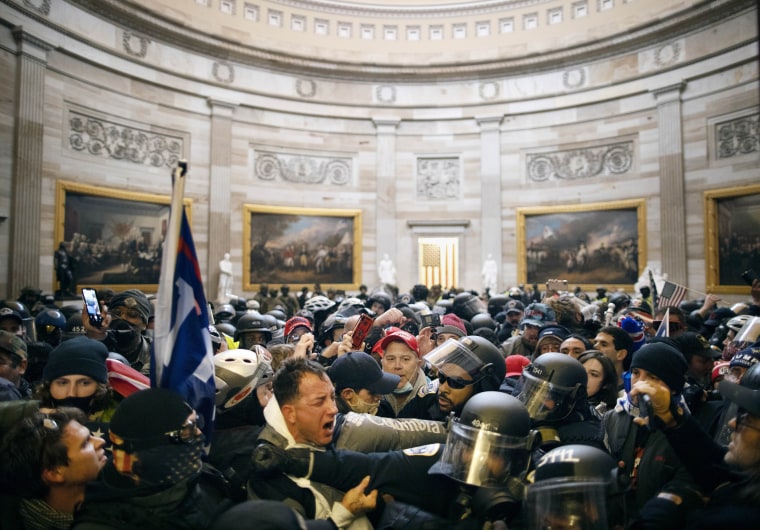In theory, the creation of an independent commission to investigate the Jan. 6 attack on the Capitol seems obvious. Nearly two months after the deadly insurrectionist riot, there's no shortage of questions in need of answers -- questions unresolved by the recent impeachment trial -- and an independent panel could both fill in the gaps and make policy recommendations to prevent related violence in the future.
But in practice, it's proving to be far more difficult. House Speaker Nancy Pelosi (D-Calif.) this week presented a blueprint for a special panel, and as the New York Times noted, Republicans wasted little time in denouncing it.
Senator Mitch McConnell, Republican of Kentucky and the minority leader, called [Pelosi's] idea "partisan by design," and compared it unfavorably with the Sept. 11 commission, which was evenly divided. He also predicted that Democrats would use their influence on the panel to focus mainly on violent acts by Mr. Trump's supporters — who planned and perpetrated the assault — suggesting that its mandate should be broadened to examine left-wing extremists.
For now, there are two core elements to the dispute, and neither will be easily addressed.
The first is the partisan makeup of the proposed commission. Pelosi envisions an 11-member panel, with the White House appointing three members, while each of the four congressional leaders would appoint two.
Not surprisingly, Republicans have denounced such a model, and it's easy to understand why. And under normal circumstances, Pelosi's approach -- seven Democratic panelists and four Republicans -- might very well seem unfair. But therein lies the rub: it's difficult to see the contemporary GOP as a normal political party.
Indeed, consider the practical realities: House Minority Leader Kevin McCarthy (R-Calif.), among other things, formally voted last month to reject the results of the 2020 presidential election, joining a majority of his House conference. If the commission is evenly split, what's to stop GOP leaders from choosing unhinged partisans who use their posts to advance ridiculous conspiracy theories?
Having an equal number of Democrats and Republicans on the panel may sound reasonable, and Pelosi has said she's willing to negotiate on the exact partisan breakdown, but the radicalization of GOP politics means the independent commission would struggle to succeed if its members are divided evenly. The result would likely be two reports -- one from each party -- instead of a single set of findings and recommendations.
The other sticking point is arguably more important: the scope of the investigation itself. Again, this may seem obvious. There was an attack; Americans died; and officials need to know how and why this happened.
But McConnell wants to widen the aperture, because investigating the attack on the Capitol on Jan. 6 would implicate his party's president, members of his party's base, and possibly even members of the Republican congressional delegation.
As NBC News reported, legislation to create the commission was expected to be unveiled this week, but those plans were delayed in the face of GOP opposition. Don't be surprised if the search for a compromise that can overcome a Republican filibuster in the Senate takes a while.
